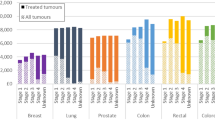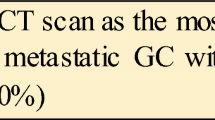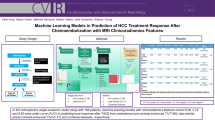Abstract
Objective
To establish the dynamic treatment strategy of Chinese medicine (CM) for metastatic colorectal cancer (mCRC) by machine learning algorithm, in order to provide a reference for the selection of CM treatment strategies for mCRC.
Methods
From the outpatient cases of mCRC in the Department of Oncology at Xiyuan Hospital, China Academy of Chinese Medical Sciences, 197 cases that met the inclusion criteria were screened. According to different CM intervention strategies, the patients were divided into 3 groups: CM treatment alone, equal emphasis on Chinese and Western medicine treatment (CM combined with local treatment of tumors, oral chemotherapy, or targeted drugs), and CM assisted Western medicine treatment (CM combined with intravenous regimen of Western medicine). The survival time of patients undergoing CM intervention was taken as the final evaluation index. Factors affecting the choice of CM intervention scheme were screened as decision variables. The dynamic CM intervention and treatment strategy for mCRC was explored based on the cost-sensitive classification learning algorithm for survival (CSCLSurv). Patients’ survival was estimated using the Kaplan-Meier method, and the survival time of patients who received the model-recommended treatment plan were compared with those who received actual treatment plan.
Results
Using the survival time of patients undergoing CM intervention as the evaluation index, a dynamic CM intervention therapy strategy for mCRC was established based on CSCLSurv. Different CM intervention strategies for mCRC can be selected according to dynamic decision variables, such as gender, age, Eastern Cooperative Oncology Group score, tumor site, metastatic site, genotyping, and the stage of Western medicine treatment at the patient’s first visit. The median survival time of patients who received the model-recommended treatment plan was 35 months, while those who receive the actual treatment plan was 26.0 months (P=0.06).
Conclusions
The dynamic treatment strategy of CM, based on CSCLSurv for mCRC, plays a certain role in providing clinical hints in CM. It can be further improved in future prospective studies with larger sample sizes.
Similar content being viewed by others
References
Riedesser JE, Ebert MP, Betge J. Precision medicine for metastatic colorectal cancer in clinical practice. Ther Adv Med Oncol 2022;14:1–25.
National Research Council (US) Committee on A Framework for Developing a New Taxonomy of Disease. Toward precision medicine: building a knowledge network for biomedical research and a new taxonomy of disease. Washington (DC): National Academies Press; 2011.
Zhang T, He WT, Zi MJ, Song G, Yi DH, Yang YF. Cohort study on prognosis of patients with metastatic colorectal cancer treated with Integrated Chinese and Western medicine. Chin J Integr Med 2018;24:573–578.
Zhang T, Yang YF. Randomized controlled clinical trial of efficacy and safety of Quxie Capsules in the treatment of metastatic colorectal cancer. World Chin Med 2021;16:1364–1371.
Lin FX, Tian LF, Lei CY, Ding CC, Shi L, Zhang SF. Chinese medicine for outcomes in colorectal cancer patients: a retrospective clinical study. Chin J Integr Med 2017;23:648–653.
Peng W, Zhang S, Zhang Z, Xu P, Mao D, Huang S, et al. Jianpi Jiedu Decoction, a traditional Chinese medicine formula, inhibits tumorigenesis, metastasis, and angiogenesis through the mTOR/HIF-1 α/VEGF pathway. J Ethnopharmacol 2018;224:140–148.
Sui H, Pan SF, Feng Y, Jin BH, Liu X, Zhou LH, et al. Zuo Jin Wan reverses P-gp-mediated drug-resistance by inhibiting activation of the PI3K/Akt/NF-κ B pathway. BMC Complement Alternat Med 2014;14:279.
Lin X, Yang X, Yang Y, Zhang H, Huang X. Research progress of traditional Chinese medicine as sensitizer in reversing chemoresistance of colorectal cancer. Front Oncol 2023;13:1132141–1132158.
Murphy SA. Optimal dynamic treatment regimes. J Royal Stat Soc B (Statist Methodol) 2003;65:331–355.
Zhang H, Lei J. Optimal treatment strategy of cancers with intratumor heterogeneity. Math Biosci Eng 2022;19:13337–13373.
Kindblom LG, Zimmermannschlatter A, Tsui WK, Fletcher CD. WHO classification of tumours of the digestive system. Lyon: IARC Press; 2010:1–193.
Edge SB, Byrd DR, Compton CC, Fritzstratmann A, Greene F, Trotti AR, eds. AJCC Cancer Staging Manual. 7th edition. Colon and rectum. New York: Springer Verlag; 2009:143–164.
National Comprehensive Cancer Network. (NCCN) Clinical Practice Guidelines in Oncology. Colon cancer, version 2. 2021. Available at: https://www.nccn.org/patients.
National Comprehensive Cancer Network. (NCCN) Clinical Practice Guidelines in Oncology. Rectal cancer, version 1. 2021. Available at: https://www.ncc-n.org/patients.
Guidelines Working Committee of Chinese society of Clinical Oncology. Chinese Society of Clinical Oncology Colorectal Cancer Diagnosis and Treatment Guidelines 2020. Beijing: People’s Medical Publishing House; 2020:56–75.
Datta SS, Ghosal N, Daruvala R, Chakraborty S, Shrimali RK, van Zanten C, et al. How do clinicians rate patient’s performance status using the ECOG performance scale? A mixed-methods exploration of variability in decision-making in oncology. Ecancermedicalscience 2019;13:913–936.
Sung H, Ferlay J, Siegel RL, Laversanne M, Soerjomataram I, Jemal A, et al. Global Cancer Statistics 2020: GLOBOCAN estimates of incidence and mortality worldwide for 36 cancers in 185 countries. CA Cancer J Clin 2021;71:209–249.
Kocarnik JM, Compton K, Dean FE, Fu W, Gaw BL, Harvey JD, et al. Cancer incidence, mortality, years of life lost, years lived with disability, and disability-adjusted life years for 29 cancer groups from 2010 to 2019: a systematic analysis for the Global Burden of Disease Study 2019. JAMA Oncol 2022;8:420–444.
GBD 2019 Colorectal Cancer Collaborators. Global, regional, and national burden of colorectal cancer and its risk factors, 1990–2019: a systematic analysis for the Global Burden of Disease Study 2019. Lancet Gastroenterol Hepatol 2022;7:627–647.
Dekker E, Tanis PJ, Vleugels JLA, Kasi PM, Wallace MB. Colorectal cancer. Lancet 2019;394:1467–1480.
Van der Stok EP, Spaander MCW, Grünhagen DJ, Verhoef C, Kuipers EJ. Surveillance after curative treatment for colorectal cancer. Nat Rev Clin Oncol 2017;14:297–315.
Huang HY, Shi JF, Guo LW, Bai YN, Liao XZ, Liu GX, et al. Expenditure and financial burden for the diagnosis and treatment of colorectal cancer in China: a hospital-based, multicenter, cross-sectional survey. Chin J Cancer 2017;36:41.
Cervantes A, Adam R, Roselló S, Arnold D, Normanno N, Taïeb J, et al. Metastatic colorectal cancer: ESMO Clinical Practice Guideline for diagnosis, treatment and follow-up. Ann Oncol 2023;34:10–32.
Dienstmann R, Salazar R, Tabernero J. Molecular subtypes and the evolution of treatment decisions in metastatic colorectal cancer. Am Soc Clin Oncol Educ Book 2018;38:231–238.
Sun L, Yang Y, Vertosick E, Jo S, Sun G, Mao JJ. Do perceived needs affect willingness to use traditional Chinese medicine for survivorship care among Chinese cancer survivors? A cross-sectional survey. J Global Oncol 2017;3:692–700.
Wang Y, Liu P, Fang Y, Tian J, Li S, Xu J, et al. The effect of long-term traditional chinese medicine treatment on survival time of colorectal cancer based on propensity score matching: a retrospective cohort study. Evid Based Complement Alternat Med 2020;2020:7023420.
Yeh MH, Chiu HP, Wu MC, Koo M, Lin NW, Liao KK, et al. Integrated Chinese herbal medicine and Western medicine on the survival in patients with colorectal cancer: a retrospective study of medical records. Evid Based Complement Alternat Med 2020;2020:4561040.
Murphy SA. An experimental design for the development of adaptive treatment strategies. Statist Med 2005;24:1455–1481.
Yefenof J, Goldberg Y, Wiler J, Mandelbaum A, Ritov Y. Self-reporting and screening: data with right-censored, left-censored, and complete observations. Stat Med 2022;41:3561–3578.
D’Arrigo G, Leonardis D, Abd ElHafeez S, Fusaro M, Tripepi G, Roumeliotis S. Methods to analyse time-to-event data: the Kaplan-Meier survival curve. Oxid Med Cell Longev 2021;2021:2290120.
Author information
Authors and Affiliations
Contributions
Xu YY wrote the manuscript and was involved in the extraction of data, the statistical analysis of data and follow-up of patients. Yi DH contributed to the study design, statistical analysis and critical review of the manuscript. Yang YF and Li QY contributed to the study design, revision, and critical review of the manuscript. Chen Y and Zhai JW participated in the literature review, the follow-up of patients and data verification. Zhang T and Sun LY contributed to the revision and review of the manuscript. All the authors read and approved the final manuscript.
Corresponding author
Ethics declarations
The authors declare that there are no conflicts of interest regarding the publication of this paper.
Additional information
Supported by Special Project of Scientific Research of Capital Health Development (No. 2022-1-4171)
Rights and permissions
About this article
Cite this article
Xu, Yy., Li, Qy., Yi, Dh. et al. Dynamic Treatment Strategy of Chinese Medicine for Metastatic Colorectal Cancer Based on Machine Learning Algorithm. Chin. J. Integr. Med. (2024). https://doi.org/10.1007/s11655-024-3718-4
Accepted:
Published:
DOI: https://doi.org/10.1007/s11655-024-3718-4




